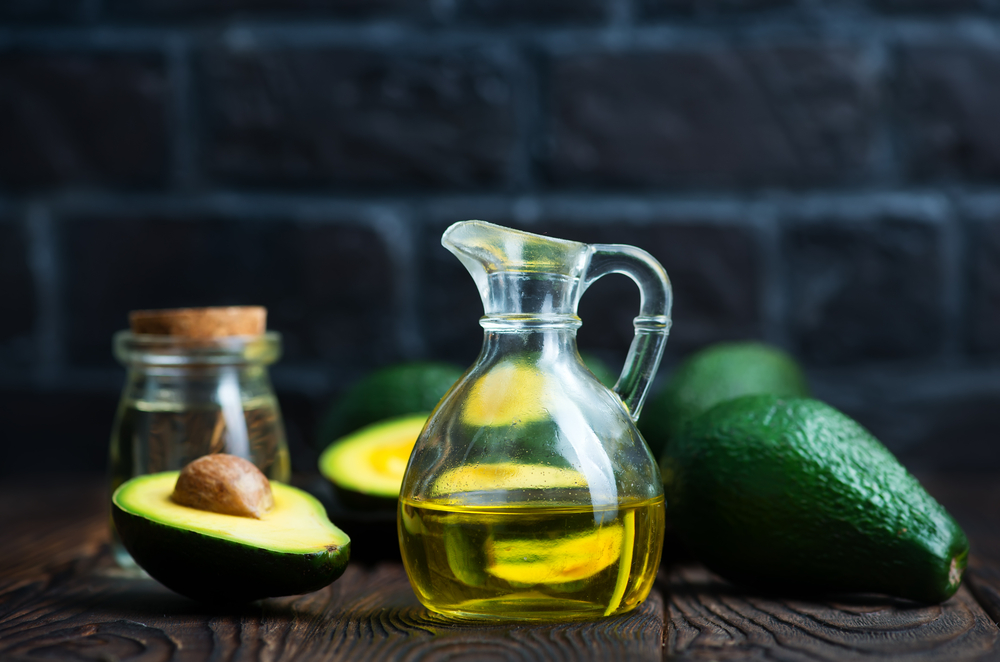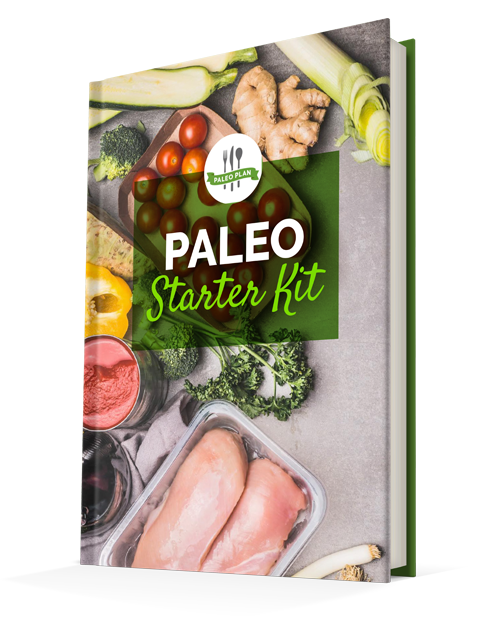
Avocado oil is made from the pressed pulp of the avocado fruit, rather than the seed, rendering a culinary oil. It is rich not only in flavor, but also essential fatty acids, vitamins, and minerals.
Avocado oil is made by taking the creamy inside of the fruit and pressing it into a drum that spins at high speeds, called a centrifuge, which separates the oil and the water from the pulp. The oil then rises to the top and is removed and filtered. This process takes about 20 avocados to make one eight ounce bottle of oil.
Fatty acid breakdown in avocado oil consists roughly of:
- 70 percent oleic acid
- 12 percent saturated fat
- 13 percent polyunsaturated fat
It is rich in omega 6 and omega 9 fatty acids, as well as antioxidants, polyphenols, micronutrients, vitamins, and minerals such as:
- Thiamin
- Riboflavin
- Vitamin K
- Vitamin C
- Vitamin E
- Vitamin A
- Potassium
- Magnesium
- Iron
One tablespoon of avocado oil contains about 124 calories, with 14 grams of fat. (1, 2)
Nutrients in Avocado Oil
While most people have gotten over their fear of fat, some might still cringe at the idea of increasing it in their diets. It is important to note that neither avocados or avocado oil are hydrogenated, or full of trans fats or other unhealthy oxidized fats like canola, corn, and safflower oils.
The majority of fats found in avocado oil come from oleic acid, which is the same monounsaturated omega-9 fatty acid that is found in olive oil. Oleic acid is associated with decreased inflammation, due to its ability to down-regulate cell signaling pathways that can lead to excessive oxidative damage, suppressed immune system functioning, and even more adverse health issues such as atherosclerosis and cancer. (3)
10 Health Benefits of Avocado Oil
Studies over the past several years have found the benefits of avocado oil to be vast, which include the prevention of diabetes, obesity, high cholesterol levels, as well as balancing blood glucose levels and scavenging free radical damage. (4)

Cardiovascular Health
The monounsaturated fats that are found in avocado oil can have beneficial effects for arterial, blood pressure, and heart health. Avocado oil also affects the composition of fatty acids in the kidneys and heart, which has positive effects on blood pressure. (5)
Diabetes
A study published in The Journal of the American Medical Association found that when participants substituted carbohydrates with either protein or monounsaturated fat, such as those found in avocado oil, they were able to lower blood pressure, reduce glucose levels, improve lipid levels, and decrease estimated cardiovascular risk. (6)
Blood Sugar
The monounsaturated fatty acids found in avocado oil, as well as the polyunsaturated fatty acids, phytosterols, lutein, and potassium may help promote normal blood pressure and glucose support, as well as help control oxidative and inflammatory stress responses in the body. (7)
Cholesterol
Dietary monounsaturated fatty acids also have beneficial effects on reducing the risk of coronary heart disease (CHD). Evidence from controlled clinical studies has shown that monounsaturated fatty acids favorably affect a number of risk factors that have been associated with CHD, such as cholesterol and triglyceride levels, factors related to blood clot formation, LDL oxidative susceptibility, and insulin sensitivity. (8)
Nutrients
According to a study published in the Journal of Nutrition, the addition of avocado oil to a meal can boost the absorption of carotenoids (fat soluble antioxidants) found in food. The study found that adding avocado oil to their salad significantly enhanced alpha-carotene, beta-carotene, and lutein absorption, which can provide immune support and eye health benefits. (9)
Antioxidant Support
When you add avocado oil to salsa or salad you are able to absorb three to five times more fat-soluble carotenoids due to avocado’s lipid profile. Eating carotenoid rich foods, such as avocado oil, allows your body to also absorb more fat-soluble nutrients such as lutein and zeaxanthin. Increasing antioxidant absorption may help protect your body against free radical damage. (10)
How to Buy Avocado Oil

Unrefined avocado oil should be dark green in color, with a rich fatty scent and nutty flavor. Refined and processed – and often cheaper – avocado oils, will usually be more yellow in color and have a weaker smell. Some extra virgin avocado oils have been found to have more vitamin E than olive oil. (11)
Making sure you purchase pure avocado oil is imperative when it comes to your health. The avocado oil you buy is only as good as the avocado from which it came. Higher quality avocado oils will be organic, extra-virgin, unrefined, and cold-pressed.
Be sure to store your avocado oil in a cool, dry place. Heat, light, and oxygen are oil destroyers. Try to use your avocado oil within six months of opening.
3 Ways to Use Avocado Oil for Cooking
Avocado oil is a versatile fat that can be used in the kitchen in a variety of ways.
Cooking
Replace your mayonnaise with avocado oil in your tuna salad for a rich and creamy lunch, drizzle it over fish before baking, add to hummus or guacamole to pair with chopped veggies for an afternoon luncheon, or simply swap out olive oil in your favorite salad dressing recipes.
Baking
Avocado oil’s high smoke point (roughly 520ºF) makes it a great healthy swap in not only your favorite dishes, but also your kitchen cabinets. When you are using any oils for cooking, it’s important that you take into consideration the oil’s smoke point, or the temperature at which oils begin to break down and oxidize. Use in place of butter or even olive oil in your favorite baking recipes.
Blending
Add to smoothies, or blend with some other Paleo-friendly nuts to make your own nut butters and dairy-free cheese replacements. Mix ¼ cup avocado oil with ½ cup of cashews and basil for a non-dairy pesto sauce!
A Note About Smoke Points
Even seemingly “healthy oils” such as olive oil, can become problematic to your health when they reach their smoke point, as fats are somewhat fragile and once they are broken down, or oxidized, they can form dangerous compounds which can cause damage to your artery lining and cells. (12)
Depending on the type of cooking you plan on doing, you might consider different kinds of avocado oil. For example, if you are planning on doing high-heat cooking, opt for refined avocado oil, as it has a high smoke point of at least 400ºF.
Unrefined avocado oil has a medium smoke point, so this might be better for lower or unheated type of cooking, as well as salad dressings, dipping oils, or added on top of salads and raw veggies.
6 Ways to Use Avocado Oil Outside the Kitchen

Don’t stop at the kitchen counter when it comes to using avocado oil. This fantastic fruit can make a great addition to your beauty regimen.
A 2001 study published in Dermatology found that a vitamin B12 cream containing avocado oil had potential to be used as a long-term topical therapy for psoriasis, which is a common skin problem marked by dry, cracked, irritated, and red skin. Psoriasis patients used the avocado oil cream for 12 weeks and showed consistent improvement throughout the study. (13)
Other studies have found that avocado oil and its high oleic acid content can help to reduce skin inflammation and increase wound healing. Avocado oil has been shown to boost skin collagen metabolism, as well as increase skin moisture. It can be used as a great moisturizer for dry, irritated, and sun-damaged skin. (14, 15)
In addition to eating and cooking with avocado oil, you can also apply avocado oil directly to your skin or mix in into your favorite beauty products. Since avocado oil is made from the seed of the fruit, it is considered a carrier oil, which can be used to help dilute essential oils. A 2015 study found that using a topical cream which consisted of avocado oil, tea tree, emu oil, and jojoba oil had antimicrobial effects on the skin. (16)
1. Moisturize
Use avocado oil as a lotion and rub into your skin after your shower, or even add a few drops to your favorite lotion. You can make your own facial moisturizer by mixing avocado oil with a nourishing oil, like emu, and adding a few drops of a soothing essential oil such as lavender or rose oil.
2. Mask
Make a homemade face mask by combining cut up avocado with avocado oil into a paste-like consistency. Apply the mask to your face for 15 minutes and rinse with warm water.
3. Makeup Remover
Use avocado oil to remove makeup with a cotton ball. Works well for eyelids and cheeks!

4. Hair care
Don’t forget those luscious locks and use avocado oil as a natural hair conditioner or a split-end saver. Cover your hair or split ends with avocado oil and leave it wrapped in a towel for 15 to 20 minutes before you lather up your hair and wash as normal.
5. Cuticle Cream
Rub a small amount of avocado oil onto cuticles with a cotton ball after showering. This will help to keep cuticles soft and supple without having to worry about greasy and expensive hand creams.
6. Eye Cream
The antioxidants and essential fats found in avocado make a great hydrating cream for those puffy undereye areas.
Bottom Line
Avocado oil is a versatile, healthy fat that can be used in countless ways in the kitchen and in your healthy skin and haircare routine.
